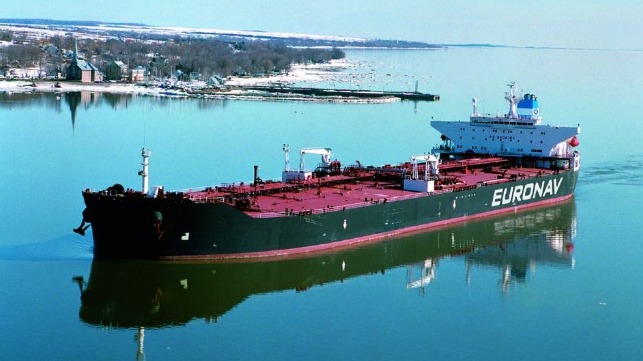Euronav Launches Ammonia Research JV as it Orders New Tankers

Tanker operator Euronav is proceeding with investments to modernize its fleet, while also launching a new partnership to help accelerate the development of dual-fuel vessels prepared for a future transition to ammonia. The newbuilds will be delivered on a staggered timetable the company said in order to permit progress towards the development of ammonia-fitted tankers.
The joint development program will involve Euronav working along with Hyundai Heavy Industries, Lloyd’s Register, and DNV. The project will be focused on the development of dual-fuel ammonia propulsion for VLCC and Suezmax vessels. They will be working to help accelerate the development of the technology with an initial term of three years for the project.
“Shipping is entering an era of rapid technological developments and increasing environmental efforts demanding strong stewardship,” said Hugo de Stoop, CEO of Euronav. “Working with key partners toward the safe transport and commercialization of new technologies will be instrumental in delivering benefits for the wider marine industry. This partnership will accelerate the development and adoption of ammonia as one of the key solutions for the shipping sector.”
Since the beginning of the year, Euronav has increased its investments in its fleet rejuvenation program. The goal is to use the development project to advance the technologies that will be fitted into its new vessels.
Today, Euronav confirmed that it has entered into new contracts for the building of three Suezmaxes with a total cost of $199.2 million. To be built by Hyundai Heavy Industries the vessels will be delivered in the third quarter of 2023 and the first quarter of 2024. They are in addition to two Suezmaxes the company acquired in the secondhand market and taking over a building slot at Hyundai Hyundai Samho for the construction of two VLCCs. The company said as part of today’s orders that it had lifted the option to build a third VLCC that would have been delivered in the second quarter of 2023.
“Every vessel ordered is part of our fleet rejuvenation program and is already outperforming any other existing vessels in terms of fuel consumption and emissions, and in particular, the older vessels that will be phased out of the fleet because of their age profile,” the company said announcing its new investments. In addition, the vessels will feature a gradual and increasing degree of readiness to be converted into dual fuel fully fitted Ammonia ships at a later stage, while retaining the possibility to convert them into dual-fuel LNG vessels if it would make more commercial sense.

that matters most
Get the latest maritime news delivered to your inbox daily.
The flexibility that these vessels offer can only be achieved by being close to the latest technological developments that are constantly coming onto the market. Euronav said as with any new technology, it is important to understand as much and as early as possible how to operate them in a safe, reliable, and efficient way.
The Joint Development Program will bring together specialists to help accelerate these technological advancements. The program will ensure that Euronav and its partners gain control, yet retain flexibility in constructing future specifications for a new generation of crude tankers.
